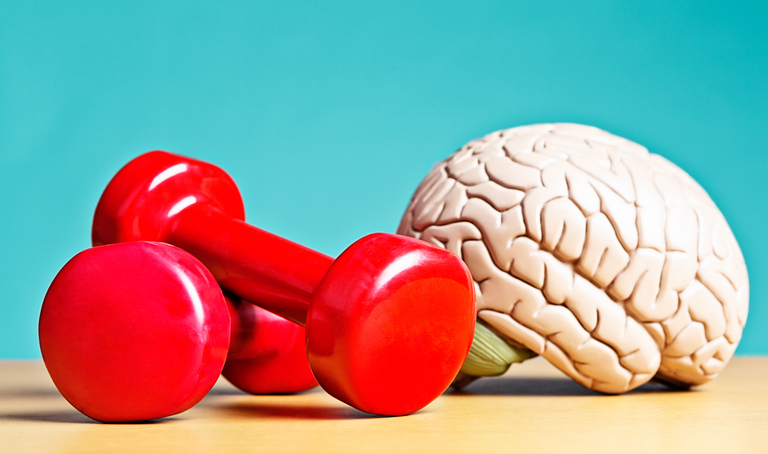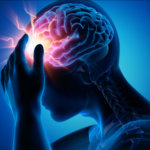In the world of sports, physical training is often the primary focus for athletes looking to excel in their fields. However, the importance of mental training cannot be overlooked. With recent advancements in technology, brain mapping, and performance brain training have become essential tools for enhancing elite athlete performance and mental health. In this article, we’ll explore the concept of brain mapping, its relevance in athlete development, and the various methods and tools used to improve cognitive performance in elite athletes.
The Mental Aspect of Sports Performance
Elite athletes not only possess exceptional physical abilities, but they also have a strong mental game. Mental toughness, focus, and the ability to make split-second decisions under pressure are crucial factors in determining an athlete’s success. Therefore, it’s essential to develop and train the mental aspect of sports performance alongside physical training.
Mental Toughness
Mental toughness is an athlete’s ability to cope with the demands and stresses of competition. It involves resilience, determination, and the ability to maintain focus and composure under pressure. Mental toughness is often the distinguishing factor between good athletes and great ones.
The Role of Brain Mapping
Brain mapping is a technique that involves recording and analyzing the electrical activity of the brain. This data can provide insights into an athlete’s cognitive function, emotional state, and overall mental health. By understanding the neural patterns associated with optimal performance, coaches, and trainers can develop targeted interventions to help athletes achieve their full potential.
The Science of Neurofeedback
Neurofeedback is a form of biofeedback that uses real-time data on brain activity to train individuals to alter their brainwaves. Through a process of operant conditioning, athletes can learn to control their brain activity, which can lead to improvements in focus, stress regulation, and decision-making. Neurofeedback has been used to treat various mental health disorders, and more recently, it has been applied to enhance sports performance.
The Importance of Mental Health Performance
Mental health performance is a critical aspect of an athlete’s overall well-being and success. High-stress environments, pressure to perform, and the physical demands of training can all take a toll on an athlete’s mental health. By addressing mental health performance, athletes can improve their focus, resilience, and overall well-being, leading to better performance on the field.
Stress Regulation
The ability to regulate stress is crucial for elite athletes, as high-stress levels can negatively impact performance. By training athletes to manage stress effectively, they can maintain their focus and composure during competition.
Impulse Control
Impulse control is essential for athletes who need to make split-second decisions. Training in impulse control can help athletes respond quickly and effectively in high-pressure situations, ultimately improving their performance.
Tools and Techniques for Performance Brain Training
There are several tools and techniques available for performance brain training. These methods aim to improve cognitive function, mental health, and overall sports performance.
Electroencephalogram (EEG)
An electroencephalogram (EEG) is a device that records electrical activity in the brain. It’s a non-invasive method used to measure brainwaves during various mental states, such as focus, stress, and decision-making. By analyzing the data from an EEG, researchers can identify patterns associated with optimal performance and develop targeted training programs to help athletes achieve these mental states.
Versus: A Performance Brain Training System
Versus is a wearable EEG headset and app designed to help athletes train their brains for optimal performance. The system uses data from the athlete’s brainwaves to create a customized training protocol, focusing on areas such as stress regulation, impulse control, and focus. Athletes can then engage in a series of games controlled by their brainwaves, which help train their brains to achieve the desired mental states.
Other Neurofeedback Systems
There are various other neurofeedback systems available that help athletes improve their mental performance. These systems may use different technologies, such as functional magnetic resonance imaging (fMRI) or magnetoencephalography (MEG), to measure brain activity and provide feedback to the athlete.
Case Studies: Performance Brain Training in Action
Performance brain training has been successfully implemented in various sports, with athletes reporting improvements in focus, stress management, and overall performance.
Carlos Quentin: Improved Focus and Stress Management
Carlos Quentin, a former MLB player, utilized Versus to improve his focus and stress management. After 62 training sessions, Quentin reported improved focus, anxiety management, and recovery from the demands of competition. Additionally, his strikeout rate decreased, and his walk rate increased, suggesting improved plate discipline and focus.
UCLA Golf Team: Enhanced Performance and Sustained Results
The UCLA Golf team participated in a peer-reviewed study that involved the use of Versus for performance brain training. Over the course of the study, the team’s average number of putts per round decreased, and their number of greens in regulation increased. These improvements were sustained over time, demonstrating the long-term benefits of performance brain training.
The Future of Performance Brain Training
As more research is conducted on the efficacy of performance brain training, it’s likely that these techniques will become more prevalent in the world of elite sports. With the increasing importance placed on mental health and well-being, brain mapping and neurofeedback will continue to play a crucial role in helping athletes reach their full potential.
Wrapping Up
The mental aspect of sports performance is just as crucial as the physical component. By utilizing brain mapping and performance brain training, elite athletes can improve their mental health performance, leading to enhanced focus, stress regulation, and impulse control. With continued research and development in this field, the future of sports performance will see a greater emphasis on the mental game, ultimately leading to better overall performance for athletes at all levels.
Please share this article so others may benefit from the information on brain mapping and performance brain training for elite athletes.





